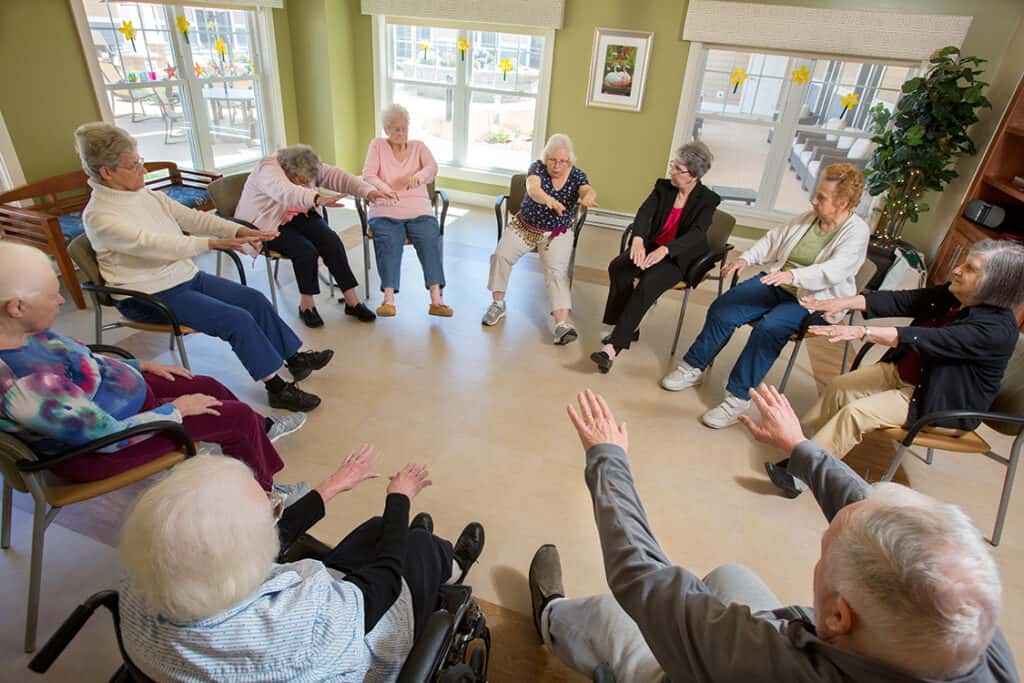Helped Living: a Compassionate Environment for Senior Citizens With Memory Challenges
Aided living centers significantly function as caring environments customized to the unique requirements of seniors grappling with memory difficulties. By supplying customized care and organized regimens, these communities not just improve cognitive function however additionally foster psychological links, reducing seclusion amongst homeowners. Specialized strategies, such as music treatment and memory methods, are used by experienced personnel to promote deeper interaction. However, the efficiency of these treatments usually depends upon the involvement of households in the care process, motivating a more detailed evaluation of exactly how this collaborative effort influences results for both locals and enjoyed ones.
Comprehending Memory Difficulties
Comprehending memory obstacles is vital for providing efficient like senior citizens encountering cognitive decline. Memory disabilities, which can show up as forgetfulness, confusion, or problem recalling current occasions, are commonly signs of problems such as Alzheimer's condition or other forms of dementia. These challenges can dramatically influence a senior's capacity to perform daily tasks, maintain social partnerships, and manage individual safety.
Recognizing the numerous stages of cognitive decrease is important for caretakers and healthcare specialists. Early-stage memory loss may entail light lapse of memory, while mid-stage decrease can cause a lot more noticable disorientation and complication. In late-stage mental deterioration, people might shed the capacity to connect efficiently, calling for thorough support and understanding from caretakers.
This requires a caring method to care that prioritizes the psychological wellness of the individual. Eventually, a deep understanding of these obstacles is essential to providing compassionate and efficient treatment for seniors dealing with cognitive decrease.
Advantages of Assisted Living
Helped living deals countless benefits for seniors with memory difficulties, giving a supportive environment that fosters independence while making certain safety and security and treatment. Among the primary advantages is the continuous guidance and aid offered, which helps alleviate dangers related to memory-related concerns. Memory Care. This constant support allows seniors to take part in everyday activities without the concern of crashes or confusion
In addition, aided living facilities often provide structured regimens that can improve cognitive feature and security. These regimens aid locals feel more safe and secure and minimize stress and anxiety, as they understand what to expect every day. Social communication is one more significant advantage, as these atmospheres urge links amongst residents, advertising emotional well-being and lowering sensations of isolation.
Additionally, aided living team are educated to recognize the one-of-a-kind needs of seniors with memory obstacles, enabling individualized treatment plans that address individual choices and needs. This customized technique not only boosts the high quality of treatment yet additionally equips elders to maintain a feeling of freedom. On the whole, assisted living acts as a caring option, stabilizing the requirement for support with the desire for freedom in the lives of elders dealing with memory difficulties.
Specialized Treatment Approaches
Applying specialized treatment approaches is important for efficiently supporting seniors with memory challenges. One fundamental method is person-centered care, which emphasizes the value of understanding each resident's life history, preferences, and values.
Another crucial technique entails utilizing cognitive stimulation treatments. Tasks created to improve memory recall, encourage social communication, and promote imagination can significantly affect residents' overall wellness. Methods such as memory therapy leverage personal memories to stimulate discussion and connection, while music treatment can stimulate emotions and memories, providing convenience.

Creating an Encouraging Neighborhood
(Memory Care Facilities Charlotte)A helpful neighborhood plays an essential function in boosting the lives of seniors with memory challenges. Such a neighborhood fosters an atmosphere of understanding, compassion, and support, which is crucial for people dealing with cognitive difficulties. By developing a network of support, aided living facilities can dramatically improve the top quality of life for citizens.
Central to a helpful community is the visibility of experienced staff that are delicate to the unique demands of seniors with memory problems. These specialists not only offer essential treatment but likewise engage homeowners in purposeful tasks that promote cognitive function and advertise social communication. Programs that motivate participation in team exercises, arts and crafts, or memory video games can improve both physical and mental well-being.
In addition, a supportive community advertises strong links among locals. Urging friendships and peer support aids to decrease sensations of seclusion and fosters a feeling of belonging. Routine get-togethers and public dining experiences can better reinforce these bonds, creating an ambience where elders feel valued and comprehended.
Involving Family Members in Treatment
Involving households in the care process is important for supplying comprehensive assistance to seniors with memory difficulties. Relative usually function as important advocates, supplying insights into the person's preferences, background, and regimens that can boost personalized care. By including them in conversations and care preparation, aided living their explanation facilities can produce a much more alternative technique that reverberates with the local's demands.

Motivating families to get involved in care not just improves the well-being of the elderly however also supplies psychological assistance to member of the family. Including families in care cultivates a feeling of area and belonging, guaranteeing that elders feel linked to their enjoyed ones. Inevitably, a collaborative approach to care improves the lives of both citizens and their families, producing a compassionate and helpful setting that promotes dignity and regard.
Conclusion
To conclude, helped living functions as a crucial resource for senior citizens experiencing memory obstacles, offering customized treatment customized to individual needs. The structured regimens and interesting tasks promote cognitive function and psychological health, cultivating a feeling of belonging. Specialized care strategies, such as reminiscence and music therapy, improve interaction and connection. By including families in the treatment process, helped living creates a thorough assistance network, eventually enriching the lives of locals and their loved ones.